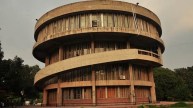Vanessa Kaur, a college student from Jalandhar, couldn’t help but feel a sense of urgency as she came across a serious accident on the road during her commute. Instead of being a mere bystander, Vanessa rushed to the scene, assisted the injured, and promptly called for help. Moments like these are what Punjab’s Farishtey Scheme seeks to encourage. The state government, led by Chief Minister Bhagwant Singh Mann, aims to not just propel the state towards growth but also enhance the living conditions of its citizens by responding to pressing issues like road accidents.
Saving Lives with Timely Intervention
A road accident statistic that reads like a grim reminder, paints the picture of urgency in India. According to the National Crime Records Bureau (NCRB), around 1,400 road accidents occur each day across the country, resulting in approximately 400 fatalities daily. Punjab alone witnesses around 5,000 such unfortunate events annually. To tackle this critical issue, the Farishtey Scheme has been introduced. The initiative is dedicated to providing swift and unhindered medical treatment to road accident victims, proving to be a boon in saving precious lives.
Empowering Good Samaritans
The heart of the Farishtey Scheme lies in the encouragement of timely assistance from common citizens during road mishaps. Babita, the Chief Executive Officer (CEO) of the Punjab State Health Agency (SHA), highlighted that Good Samaritans will be recognized and rewarded. As a part of the initiative, those who voluntarily aid accident victims are deemed Farishtey (angels). Not only do they earn a cash prize of INR 2000, but they are also presented with a certificate of appreciation, free from legal troubles and police questioning.
Since the scheme’s commencement, 223 accident victims have received free medical treatment, marking a significant step in reducing road accident mortality rates. Furthermore, 66 individuals have registered as Farishtey with the SHA Punjab. On August 15, 2024, 16 of these selfless individuals were formally acknowledged and rewarded for their noble actions. Their awards were aptly named “Farishtey Awards.”
Network of Hospitals for Swift Response
To ensure seamless medical attentiveness, the scheme comprehensively enlists 494 hospitals, including 90 tertiary care units, spread across national and state highways. These medical facilities, within a 30-kilometer radius from any major road, are specially designated to provide timely care during the critical golden hour—the first few hours post-accident known to be crucial in reducing fatalities and serious injuries.
MAPle Application: Bridging the Gap
Facilitating quick access to lifesaving medical services is the MAPle Application, a mobile app linked to this network of hospitals. This app assists the public in swiftly locating the nearest listed hospital in emergencies. Its design is integrated with emergency helplines like 108, 1033, and 112 Road Safety Force (SSF), using IT systems to determine the closest medical facility, ensuring timely transportation and care within the golden hour.
The local 108 ambulance teams are trained to handle accident victims and safely transport them to these nearest hospitals. Should any listed hospital request payment for services, beneficiaries are prompted to lodge a formal complaint with SHA Punjab or reach out via the 104 Medical Helpline.
Further Readings
- How Technology is Revolutionizing Emergency Response
- New Safety Measures for Punjab Highways
- Stories of Courage: Farishtey in Action
Through the lenses of the Farishtey Scheme, Punjab is taking a giant leap towards creating a supportive environment where the power of humanity enhances state welfare endeavors. As we celebrate the good hearts among us, let’s hope for a future where road mishaps cause less pain, secure in the knowledge that angels, or Farishtey, are near to lend a helping hand.












